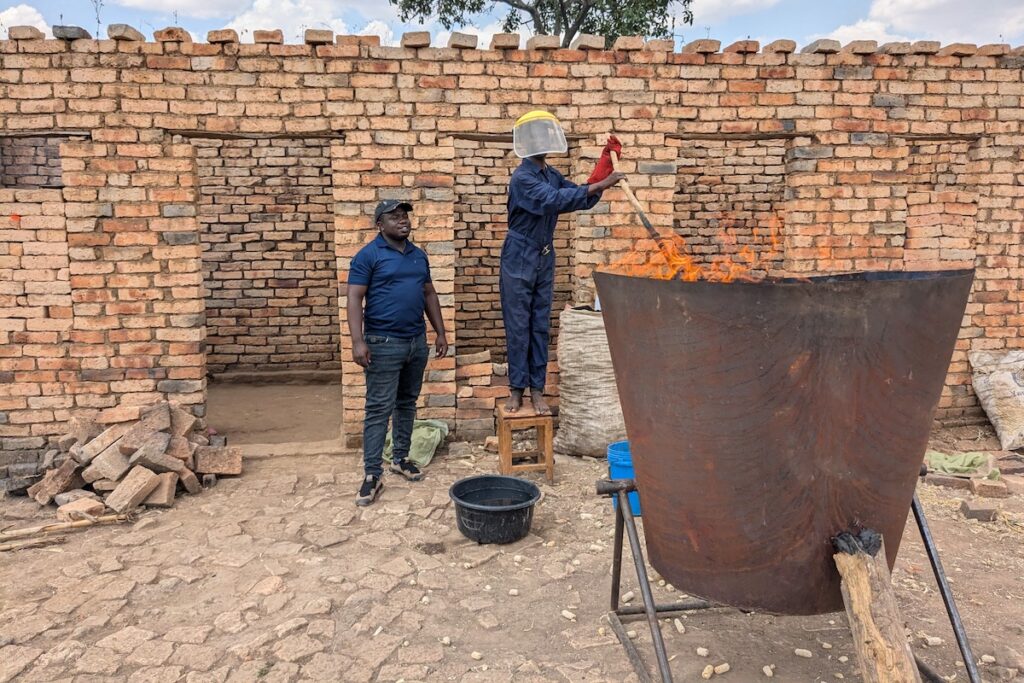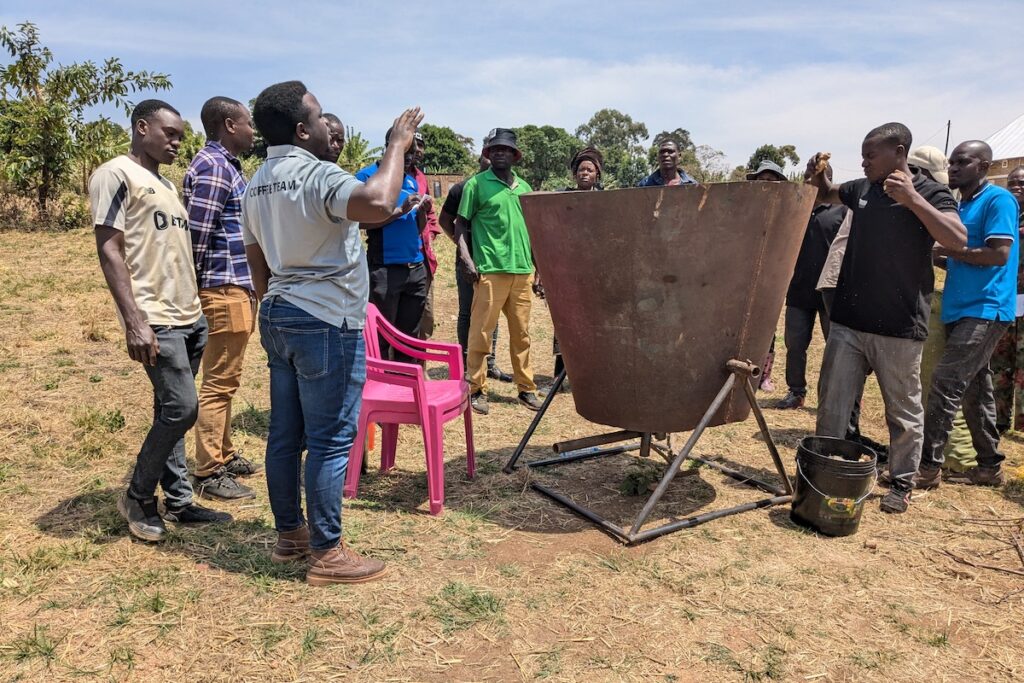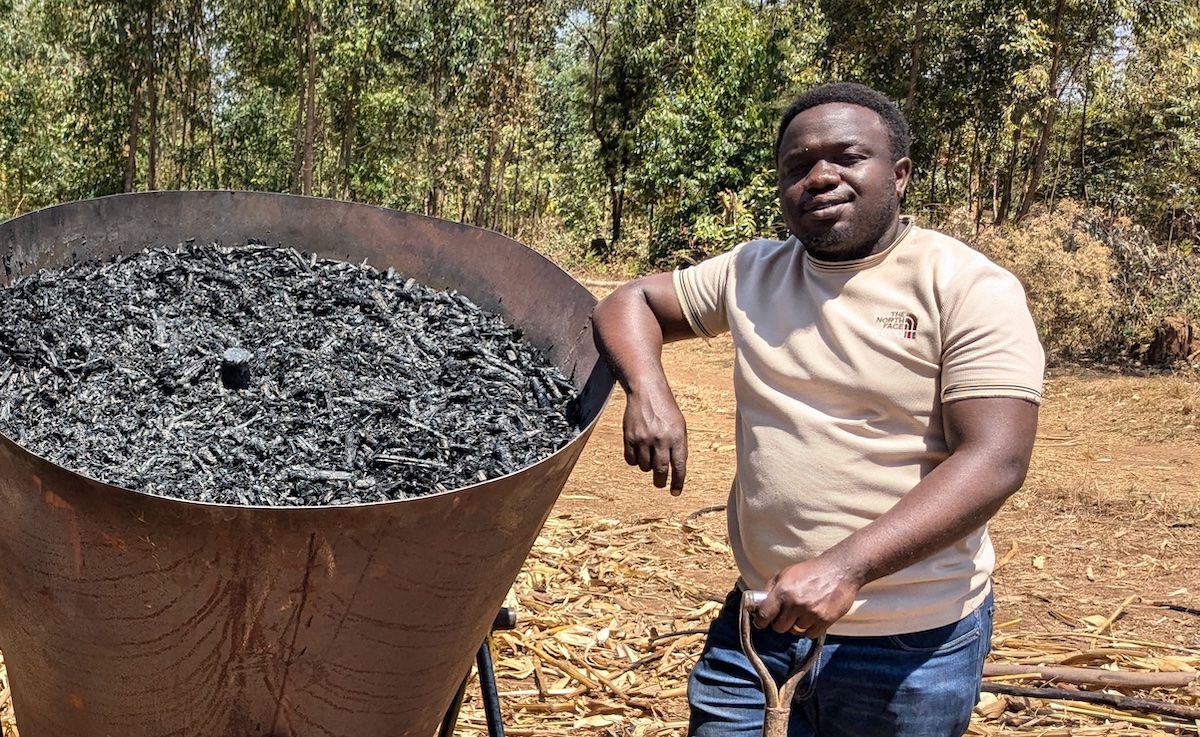Joshua Jacob, the Solidaridad C-sink Manager in Tanzania with newly created biochar.
A natural response to climate change
Since 2024, Solidaridad Tanzania, in collaboration with Planboo, has been piloting the use of biochar. But how is it produced? Biochar is created through pyrolysis: organic material—such as crop residues or agricultural waste—is heated in the absence of oxygen. This process prevents the CO₂ that would otherwise be released into the atmosphere as plant material decomposes. The result is a carbon-rich, stable material that sequesters CO₂ for the long-term (for over 100 years).
When properly applied to agricultural land, biochar improves soil fertility, enhances the soil’s water retention capacity, supports sustainable agriculture, and significantly contributes to climate change adaptation.
This benefits smallholder farmers in several ways: biochar improves soil fertility and thus yields, plus it helps smallholder farmers become more resilient to increasingly unpredictable weather conditions. (Read about all of the benefits of Biochar in this explainer.)
Field proof: A Tanzanian farmer’s story
The pilot project in Tanzania started in September and ended in December 2024—just weeks before the region was hit by extreme drought. While many coffee plantations in Songwe withered, the fields of our project participants presented a completely different picture.
A farmer from Ipyana village reports: “Most of my coffee trees withered. The soil was parched, the plants struggled to survive. But where I had used biochar, the trees looked as if they had received regular rain. The difference was incredible.”
The biochar significantly retained moisture in the soil for longer. In combination with organic fertilizer, despite the extreme heat, it even promoted the growth of coffee plants.

The farmer is convinced, saying, “What initially seemed like an abstract idea has become a real solution for me. Biochar works—and it gives my farm a real chance of survival.”
Building climate resilience from the ground up
This success story is not an isolated case. Throughout the pilot project, farmers report healthier plants, improved water availability, and greater resilience to climate extremes. The effect of biochar is tangible—its potential is enormous.
Solidaridad is convinced that climate adaptation must begin at the smallholder farming level. By promoting accessible, nature-based technologies like biochar, we not only strengthen resilience to climate change but also the economic foundation of entire village communities.

With the positive feedback from the first project phase and the visible benefits for the local people, we aim to further expand our biochar program in Tanzania. Because every hectare counts on the path to a more equitable, climate-resilient agriculture.
Be part of the solution!
The successes in Tanzania clearly demonstrate the immense potential of biochar for climate-resilient agriculture. To further scale our program and reach even more farmers, we rely on the support of funders and businesses. We warmly invite you to get in touch with us. Become part of the solution and work with us towards a more just and climate-resilient future.
Contact: Noura Hanna, Head of PES (Payment for Ecosystems Services)
noura.hanna@solidaridadnetwork.org

